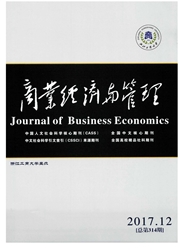

 中文摘要:
中文摘要:
文章梳理旅游产业组织演化规律,分析旅游业中要素禀赋、产业集聚与本地市场效应的相互关系,基于新贸易理论的基本假设,利用旅游和经济社会发展数据,验证中国旅游本地市场效应的存在性。研究发现:中国旅游全行业和旅行社行业不存在明显的本地市场效应;旅游景区在不同模型中均存在本地市场效应;旅游饭店及其他行业只有在考虑要素禀赋的模型中显示存在本地市场效应。研究表明,在旅游市场化的背景下,中国部分旅游行业已受到规模报酬递增影响,出现旅游产业集群化趋势,要素禀赋的比较优势和本地市场效应的规模经济同时存在于旅游景区、旅游饭店及其他行业,本地市场效益将逐渐代替要素禀赋成为中国旅游业持续增长的新动力。
 英文摘要:
英文摘要:
Under the theoretical framework of the New Trade Theory, the paper explores theories of tourism industry evolution, analyzes the relationship among factor endowment, industry agglomeration and home market effects (HMEs) , and tests the existence of HMEs with the statistic data of the development of Chinese tourism industry and economic society. Several conclusions were drawn: firstly, there are no significant HMEs in the China tourism industry and the other service sectors; secondly, there exist prominent HMEs in tourism attractions even in different models; thirdly, hotel industry and other tourism-related sectors show the existence of HMEs only in the model concerning factor endowment. The study illustrates, with the background of Tourism Marketization, some parts of Chinese tourism industry have been affected by Increasing Returns to Scale and showed a tendency of agglomeration. As a result, comparative advantage of factor endowment and HMEs coexist in the sectors of tourism attractions, hotel and the other industries, and the HMEs will replace factor endowment to be a new power for the growth of Chinese tourism industry.
 同期刊论文项目
同期刊论文项目
 同项目期刊论文
同项目期刊论文
 期刊信息
期刊信息
